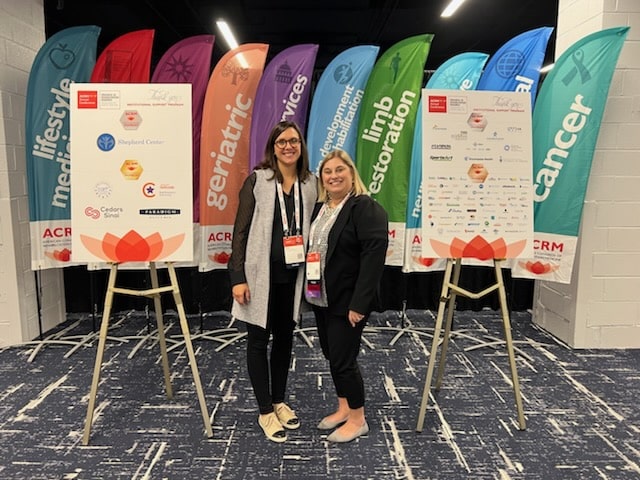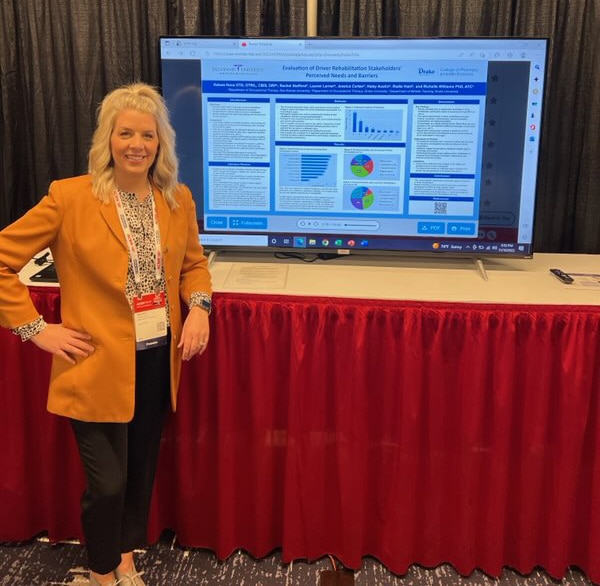
Every year, the American Congress of Rehabilitation Medicine (ACRM) holds the world’s largest interdisciplinary rehabilitation research conference, Progress in Rehabilitation Research, with presentations about chronic disabling conditions such as brain injury, spinal cord injury, stroke, neurodegenerative diseases, pain and many more focus areas. At this year’s conference in Chicago, presenters included three faculty members in DMU’s Doctor of Occupational Therapy (O.T.D.) program.
Diana Feldhacker, Ph.D., O.T.D., OTR/L, BCPR, LSVT-BIG Certified, chair and director of the program, presented a symposium session that explored the current landscape of diabetes and approaches to self-management. Her session outlined a recent research study she conducted which highlighted the role that occupational therapy can play in supporting healthy habit formation for individuals with type 2 diabetes.
Kelsee Hove, O.T.D., OTR/L, CBIS, DRP, director of clinical education and assistant professor, presented a poster investigating the perspective of community health care stakeholders on driver rehabilitation needs and service barriers in a rural Midwest region.
“This conference allows me to connect with multiple health care disciplines from all over the world to gain unique and new perspectives on relevant topics,” she says. “I always come away from this conference excited to share what I learned with students and colleagues.”
Nicole Kuhl, O.T.D., OTR/L, CBIS, capstone coordinator and assistant professor, presented three posters: the development of a complex clinical simulation experience to prepare occupational therapy students for emergent clinical situations; a review of the knowledge and perceptions of occupational therapists on patients’ orthopedic injuries and cognitive deficits; and an examination of occupational therapy students’ knowledge and perceptions of functional electrical stimulation cycle technology.

“What I appreciate most about ACRM is that it provides a powerful platform to network across disciplines regarding shared interests and cutting-edge research. The topic areas allow me to stay up to date on several areas of clinical practice so that I can more effectively teach students,” Dr. Kuhl says.
“Since this is the world’s largest interdisciplinary rehabilitation research event, being selected to present is quite an honor and has a big reach,” Dr. Feldhacker says. “I am beyond proud of how our faculty represent our growing program, DMU and the profession of occupational therapy. They have demonstrated our commitment to contributing to and infusing the latest rehabilitation research into our curriculum as we form students as future experts in occupational therapy.”
When the first cohort of students enrolls in Des Moines University’s Doctor of Occupational Therapy Program in 2023, they will join a new program on a new campus – but they’ll also be part of a medical and health sciences university that’s trained health care professionals since 1898. Among the most affordable O.T.D. programs in the region, DMU’s eight-term program also is the only one in Iowa that students can complete in person or in a hybrid format, with a mix of in-person laboratories and online course work. DMU allows students to apply to its program with 60 undergraduate credits so long as they meet prerequisite requirements. A bachelor’s degree and the GRE are not required to apply.

